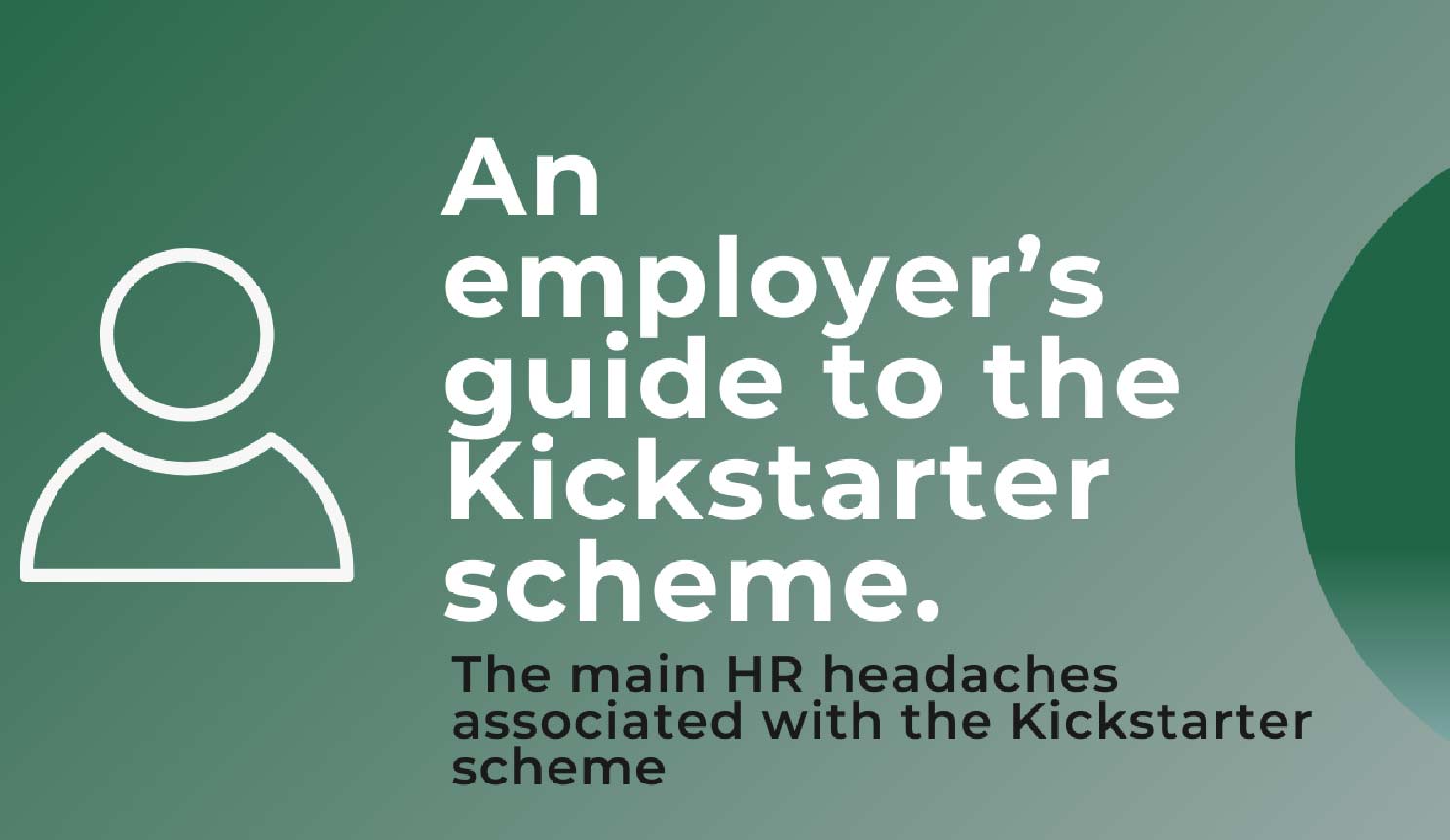This is an employer’s guide to the Kickstart scheme and the main HR headaches associated with hiring a Kickstart employee.
Did you know that there are special rules for fixed-term contracts? While your answer to this may be “Yes!”…
Did you also know that employees placed under the Kickstart scheme are also under a fixed-term contract and that these special rules apply to them?
The Government-backed Kickstart scheme has been brilliant for both Employers and Employees. With this scheme comes the potential for contractual headaches. You might be using a contract of employment which you already had or one-off of a friend who runs another business – or perhaps even one-off google – but be careful…
Here are 4 reasons why you should have correct contractual terms for Kickstart employees, and just some of the problems and headaches that can occur if you don’t have the contract drafted correctly.
Break Clauses
Kickstarter contracts are typically only for 6 months, as that is how much compensation the government is offering to employers for wages. Employers NEED to have a break clause in a fixed term 6-month contract. If the Kickstart employee does not work out, without a properly drafted break clause you will be liable for ALL of the wages due for the 6-month placement should a Kickstart employee leave for any reason (not of their own accord) even potentially if they commit gross misconduct.


Automatic End Date
Kickstarter fixed-term contracts can have an automatic end date. Even though the contract is fixed for 6 months, without an automatic end date drafted properly into the contract, you will still have to serve one week’s notice before the end of a Kickstart employee’s term, and pay that in wages on top of the 6 months already paid. This is an additional expense that can trip employers up, as the government will not reimburse Kickstarter wages outside of the 6-month term.
Annual Leave
Annual leave can be confusing. Our Annual Leave Guide can help you determine the correct annual leave for your employees. For a Kickstart employee, it is imperative that you specify their pro-rata entitlement. This is not just because they are on a fixed term of 6 months, but also because the vast majority of Kickstart employees are working on a part-time basis in order to cover the 25 hours that the government will reimburse for wages. Without specifying their exact pro-rata entitlement to annual leave, they could be entitled to a holiday for someone who works 40 hours a week for the whole year – not just 6 months!
In addition, if you fail to manage the employee and ensure that they use the annual leave, it will be paid in lieu at the end of the 6-month contract and not reimbursed by the Government!
Favourable Terms
The terms specified in a Kickstart employee’s contract should be no less favourable than for a ‘regular’ employee. It is crucial that this is done right when drafting the contract, as if there are unfavourable terms in the contract, there is potential for a claim under the Fixed Term Employees (Prevention of Less Favourable Treatment) Regulations 2002.
Employment Law Solutions – Let us help you get it right!
Contracts are our bread and butter! We offer businesses free contract reviews.
We can help you ensure that your business is protected and that you can benefit the most from the government-backed Kickstart scheme.
We offer 24/7, 365 guidance providing stress-free, pragmatic solutions to your problems. Our mission is to help you concentrate on what you do best – running your business. Protecting your business will always be our main priority.






